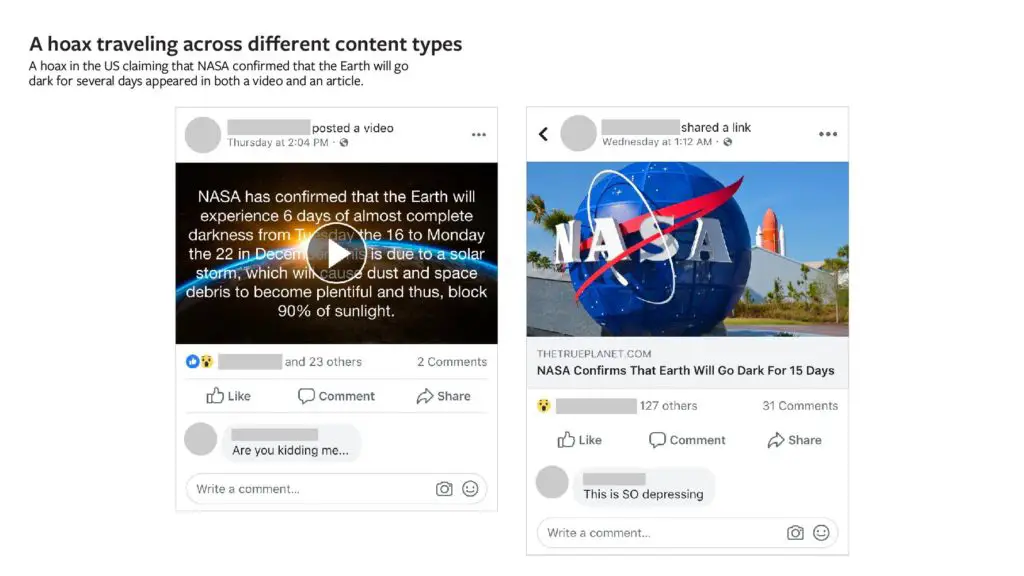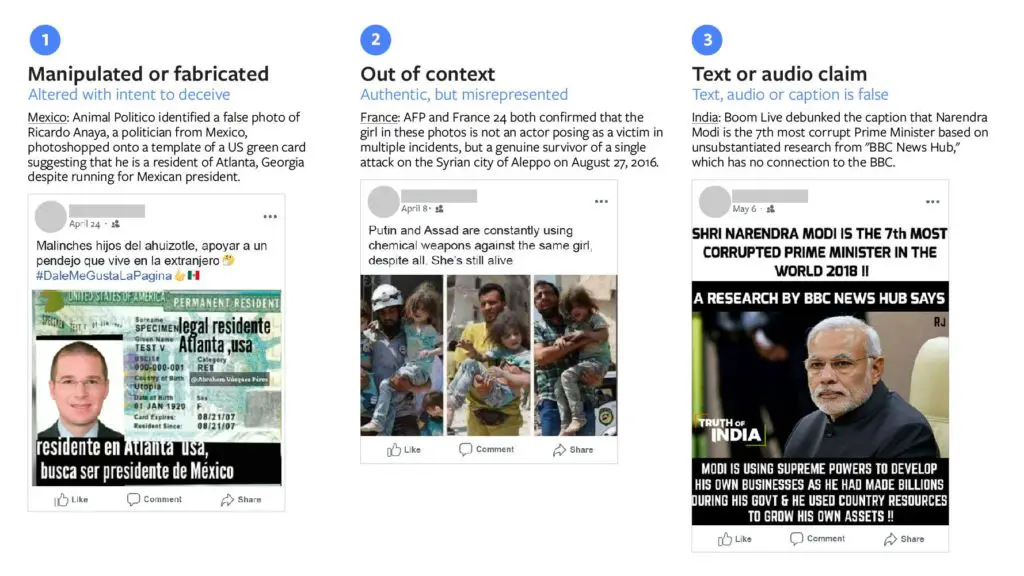To help identify and take action against more types of misinformation, faster, Facebook has now announced that it is expanding fact-checking for photos and videos to all of its 27 partners in 17 countries.
For the last two years, Facebook has made fighting misinformation a priority, and one of the ways it’s been doing so is by using independent, third-party fact-checkers to review and rate content and its accuracy. So far, fact-checking has been concentrating on articles only. However, Facebook has also been working to create new technology and a number of partners to “tackle other forms of misinformation” as well.
As a result, Facebook is now expanding fact-checking to also include photos and videos with all 27 of its partners in 17 countries. Facebook says it is “regularly on-boarding new fact-checking partners,” so this number is expected to rise in the future.
https://www.facebook.com/facebook/videos/2169674999973363/
To make fact-checking in photos and videos possible, Facebook says it has “built a machine learning model that uses various engagement signals, including feedback from people on Facebook, to identify potentially false content.” The content is then sent to fact-checkers for review, and they can then “surface content on their own,” as they are experienced at evaluating photos and videos and are trained in various visual verification techniques – the simplest of these being reverse image searching and analysing image metadata.

This is important since, in many cases, the first step is finding out when and where the photo or video was taken. It sets the foundation for their ability to “assess the truth or falsity of a photo or video,” which will then be combined with other practices like using research from experts, academics or government agencies to take it a step further.
Naturally, as more and more results come in, Facebook can continue to improve the accuracy of its machine learning model.
Facebook also uses technologies such as optical character recognition (OCR) to grab text from photos and compare it to headlines from fact-checkers’ articles. It is also working on new ways to detect manipulated images or videos.
False photos and videos are categorised in three ways based on what partners have seen most in testing over the last few months:
- Manipulated or Fabricated,
- Out of Context, and
- Text or Audio Claim

Facebook acknowledges that fighting false news is a long-term commitment and those that propagate misinformation are always changing their tactics. The fight, therefore, requires the constant development of new and smarter technologies to counter it. For the last two years, Facebook has proven that it’s working hard to do so, however bad actors also always seem one step ahead.
[box]Read next: WhatsApp Will Pay Researchers To Study Its Fake News Problem[/box]
